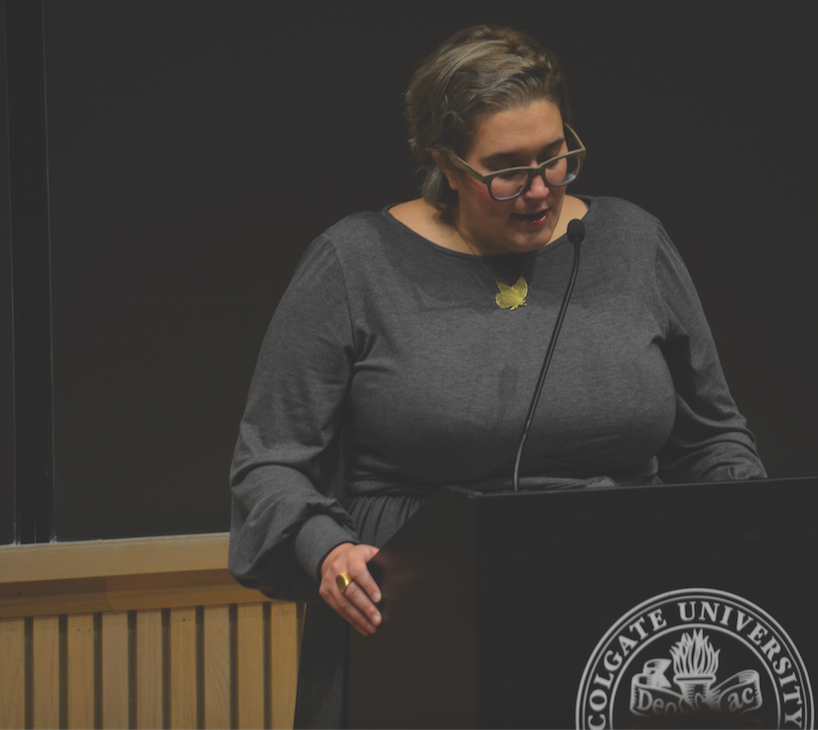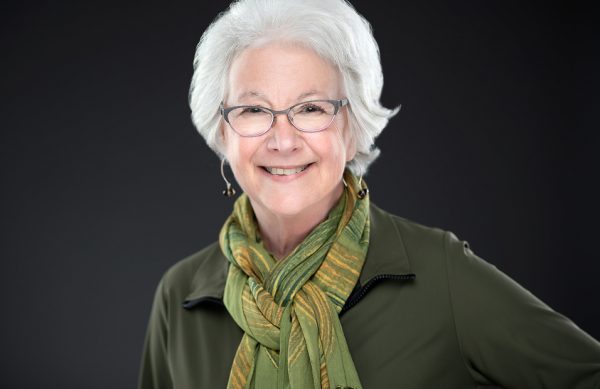Machado Empowers Queer and Feminist Bodies
A fitting atmosphere of mystery and gloom presented itself for author Carmen Maria Machado’s visit to campus on Thursday, October 3. Brought as the fourth installment of the Living Writers series, Machado discussed “Her Body and Other Parties,” her short story collection that exudes an eeriness and indefinability akin to foggy hills.
The book refuses genre labels, combining elements of horror, fantasy and sci-fi while distinctly breaking off from norms to create hybrid, living stories. All center around the topic of the feminine psyche and its role in the physical world, where women’s bodies are often taken from their control.
To begin her talk, Machado deviated from the book to read her recently published short story, “Blur.” It followed the anxiety of a woman who loses her glasses at a highway rest stop, where she can only think about being late and disappointing her abusive girlfriend. Incorporating dreams with monsters and a mysterious blue-suited figure who walks the main character down the interstate shoulder, the story fit seamlessly with the milieu of Machado’s book.
Like many of her works, this story revolved around a queer relationship dynamic. In writing stories with a focus on LQBTQ+ characters, Machado said she wants to bring visibility to queer relationships that are often miss- ing from historical records, even if that means shining a light on the darker side of abuse. She relies on fiction to bridge gaps often left in speculation.
Even within this specific context, Machado wanted to touch on universal concepts of love, abuse and how we often justify those two conflicting cycles. The main character in “Blur” attempts to explain her lover’s abuse away with the passion they felt for one another, a major flaw in relationships that Machado said she wanted to bring special attention to as she’d seen it multiple times in her own relationships and those around her.
After her reading, Machado took questions from students and faculty about her book. Many revolved around the explicitly sexual nature of her works and the feminist attitude that envelopes the stories. Machado was clear in what she wanted to accomplish with the collection; through her writing, she hoped to encourage women to reclaim power through their physical bodies, namely through the experiences and pleasures that sex can offer.
“We shouldn’t look at the body as a place of shame but as pleasurable,” she said.
Machado, having written the book five years ago and seeing it published last year, couldn’t help but show disappointment in its applications to the current world. But she wasn’t at all surprised.
“We treat women like garbage all the time,” she said. In the wake of the #MeToo movement and the nomination, now confirmation, of Brett Kavanaugh as Supreme Court Justice, Machado’s stories hold even more weight and call for more attention to women’s perspectives. Machado’s writings are inherently feminist because they call for women to be heard in a time when they are continually silenced or willfully ignored. She sees her works as giving voices to women who society still will not listen to.
Contact Andrew Kish at [email protected].




